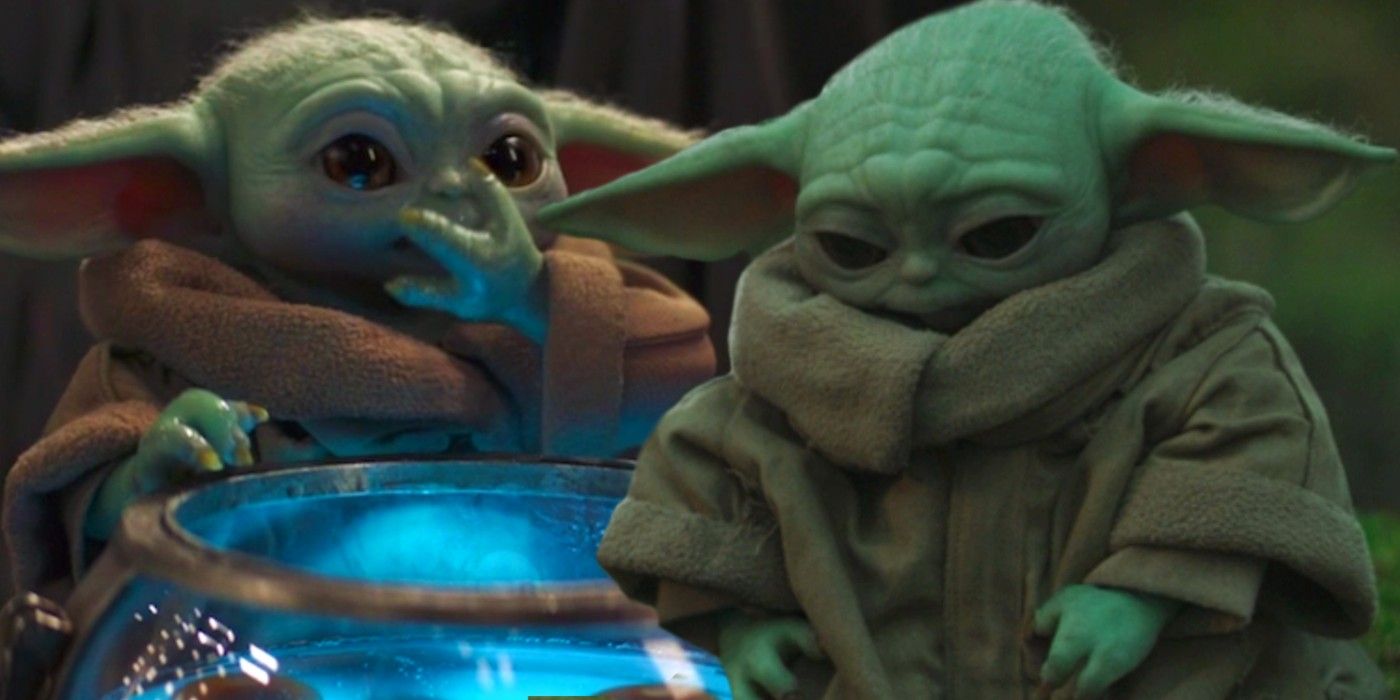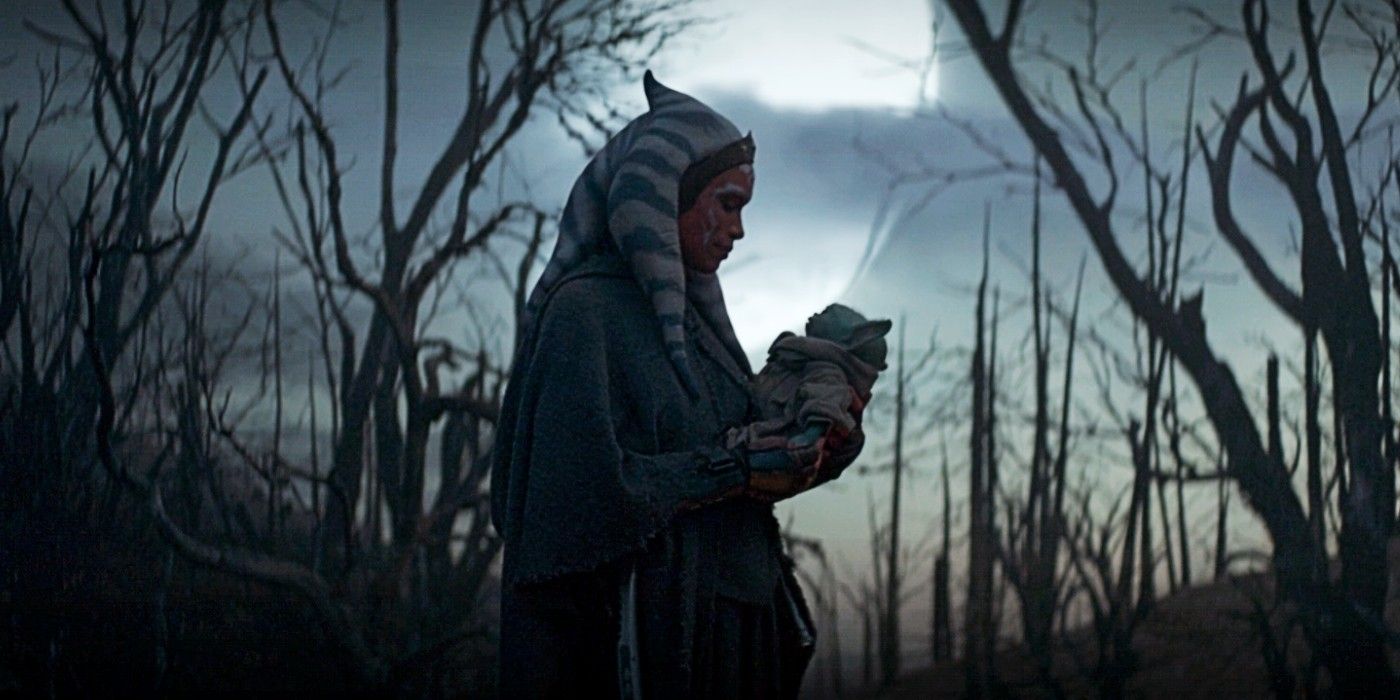
The Mandalorian's season 2 episode, "The Jedi" makes the moment when Baby Yoda eats the Frog Lady's eggs awful once again. The episode, which introduced Rosario Dawson's Ahsoka Tano and became an instant high-point for the Disney+ Star Wars series, revealed the most information so far on who the Child really is and what led him to the Empire captivity Din Djarin saved him from.
"The Jedi" confirms that Baby Yoda is in fact called Grogu and that his backstory is far more complex than even the previous episode had established. "The Siege" had revealed that Baby Yoda was key to Moff Gideon's plans to rear clones, presumably with Force powers, and hinted that the Child had already endured some level of experimentation before his rescue. That traumatic past was added to even further in "The Jedi" with the revelation that Grogu survived Order 66's Jedi purge thanks to some mysterious assistant(s) who hid him and ferried him to safety. Though the backstory was sparse and related only through Ahsoka, it did fill in some intriguing gaps and posed even more questions about who Din Djarin's companion is, could have been, and could yet become.
The most intriguing detail Ahsoka revealed was that Baby Yoda's powers were not the raw result of his innate Force powers as had been variously speculated. In fact, Grogu had been trained by several different Jedi masters on Coruscant before the events at the end of the Clone Wars led to his enforced hiding. Ahsoka then added that his memory at that point grew dark and that the overriding feeling was of being alone, which is, of course, heartbreaking considering what would happen later with Gideon's experiments. That trauma can account for the fear and anger that Ahsoka sees within him, but his Jedi training should have ingrained in the Child a level of moral integrity that makes his decision to eat the precious eggs all the more troubling.

The major arguments for the defense of Baby Yoda's behavior in taking the Frog Lady's invaluable clutch of eggs for a snack (several times) come down to either the fact that he is an instinctual creature acting on genetic impulses or that he is an infant doing largely the same thing. But "The Jedi" changes the perception of Baby Yoda and establishes that at least some of his most childish behavior - his wilfulness, stubbornness, and impulsive reactions can be pinned as an emotional response to his trauma. His interactions with Ahsoka Tano reveal a level of understanding beyond what would be accepted of a child merely acting out.
Ahsoka's revelation of Grogu's tragic backstory suggests instead that the Child ignored the lessons he was taught on Coruscant as one of the younglings brought there as an infant. It seems unlikely that he would have graduated to the stage of lightsaber training (though it remains excitingly possible), but younglings were still taught in the Jedi arts from a very early age. The idea that the Child is somehow absolved of any moral pause for thought or guided solely by unrefined instinct does not fit with the new chapters of his backstory revealed in the second season of The Mandalorian and Baby Yoda's egg-eating antics again become a little more difficult to swallow.
from ScreenRant - Feed https://ift.tt/3mh9PIY
via IFTTT







0 comments:
Post a Comment